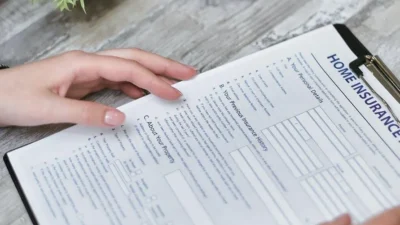Debt can feel heavy and hard to manage every day. Many people search for ways to lower their balances and stress. Debt settlement is one method that helps reduce what you owe.
This process allows you to pay less than the full amount. It may help you avoid more debt and financial trouble. But how do you know if a settlement is the right step?
This guide will explain solutions and offer simple advice. Keep reading to learn options that can improve your future.
Understanding Debt Settlement Basics
Debt settlement means working with lenders to pay less overall. Instead of paying full balances, you pay a lower agreed-upon amount. This option often works when debt feels impossible to manage.
Credit card companies may accept partial settlement to recover partial funds. However, debt settlement usually affects credit scores for some time. It is different from debt consolidation or credit counseling programs.
Understanding this difference helps you choose the right approach. Settlement is usually best for unsecured debts, like credit cards.
Knowing the basics helps reduce fear about the process. Clear information is the first step toward regaining financial balance.
Comparing Settlement and Consolidation Options
Debt settlement and consolidation are two methods that are often confused. Settlement lowers total debt through negotiation with creditors. Consolidation combines many debts into one payment with lower interest.
Both options aim to reduce stress, but they work differently. Settlement may save more money, but it may affect credit scores. Consolidation keeps your credit healthier but requires a steady income.
Choosing depends on your budget and long-term financial goals. If monthly payments are impossible, settlement may be better.
If you can pay but need lower rates, consolidation helps. Comparing both options shows the importance of matching solutions to personal needs. Clear choices give peace of mind.
Knowing When Settlement Is the Right Choice
Debt settlement is not always the right solution for everyone. People who cannot pay minimum balances may find it helpful.
Settlement may also be good if the debts keep increasing monthly. It is often better when accounts are already past due. Creditors may be willing to accept lower payments at this stage.
If you still have a steady income, other options may be safer. You should weigh the risks of credit score damage carefully. Think about future needs like buying a home or a car.
Settlement works best when other solutions no longer seem possible. Deciding early saves stress later.
Steps to Start the Debt Settlement Process
The first step is listing all debts in one place. Write down balances, interest rates, and creditor contact details. Next, check how much you can realistically pay each month.
Then, reach out to creditors or work with settlement companies. Some people choose professional negotiators to manage creditor discussions. Always make sure companies are licensed and have positive reviews.
Never send payments before signing clear written agreements. Keep careful records of each payment and settlement offer. Follow deadlines closely, since late actions may cancel agreements.
Step-by-step planning reduces mistakes and makes the process smoother. Careful preparation leads to stronger results.
Benefits and Risks of Debt Settlement
Debt settlement can reduce what you owe by a large amount. This lowers stress and can free you from unpaid balances. It also allows people to avoid bankruptcy, which is harder in the long term.
However, there are risks that need careful understanding before choosing. Credit scores usually drop after settling accounts for less. Some creditors may still reject offers, leaving debts unpaid.
There may also be tax consequences if forgiven debt is large. Despite risks, many people find relief through this method.
Balancing pros and cons helps you decide wisely. Every debt decision should match your personal financial goals.
Debt Settlement and Its Effect on Credit Scores
Debt settlement lowers balances, but credit scores may suffer. Lenders often mark settled accounts as “paid for less than owed.” This can stay on your report for several years.
The impact may make it harder to borrow money later. However, paying nothing at all is usually much worse. The settlement shows at least some responsibility to handle debt.
With time, you can rebuild your credit score carefully. Making consistent payments afterward helps repair past damage. Over time, good habits matter more than past mistakes.
Understanding credit impact prepares you for realistic expectations. Planning ahead eases the recovery process greatly.
Helpful Resources and Financial Guidance
Many organizations offer free or low-cost financial guidance to families. Credit counselors can teach budgeting skills and explain debt options. Nonprofit groups sometimes provide support with free money education.
Local community programs often share workshops about managing spending wisely. Online tools help track expenses and improve saving habits. For some groups, tailored advice is especially important.
For example, financial tips for Hispanics in San Antonio highlight cultural needs and challenges. Using these resources makes the debt settlement process easier to handle.
Guidance helps you avoid scams and poor financial decisions. Education is a powerful tool for long-term financial stability.
Avoiding Scams in Debt Settlement Programs
Sadly, some companies try to take advantage of people in debt. Scam companies may promise fast results but deliver nothing. They might ask for money up front without written agreements.
Others hide extra fees inside contracts that are hard to read. You can protect yourself by checking reviews and licenses first. Government websites often list trusted settlement companies by state.
Always keep copies of any signed documents for safety. If a company pressures you to act quickly, be cautious.
Good programs allow time to review terms and ask questions. Protecting yourself from scams ensures safe and fair debt solutions.
Always trust your instincts when something feels wrong or dishonest. Taking time to research will save you money and stress.
Learn Practical Debt Settlement Solutions
Debt settlement is not a perfect solution, but it can help. For many people, it offers a way out of growing stress. Choosing this path requires care, research, and strong planning.
You must weigh risks, benefits, and personal financial goals closely. Always compare the settlement with other options before making a final choice.
Trusted guidance from professionals can prevent costly mistakes in the future. By learning each step, you gain power over your finances.
Did you find this article helpful? If so, check out the rest of our site for more informative content.

Lexy Summer is a talented writer with a deep passion for the art of language and storytelling. With a background in editing and content creation, Lexy has honed her skills in crafting clear, engaging, and grammatically flawless writing.



